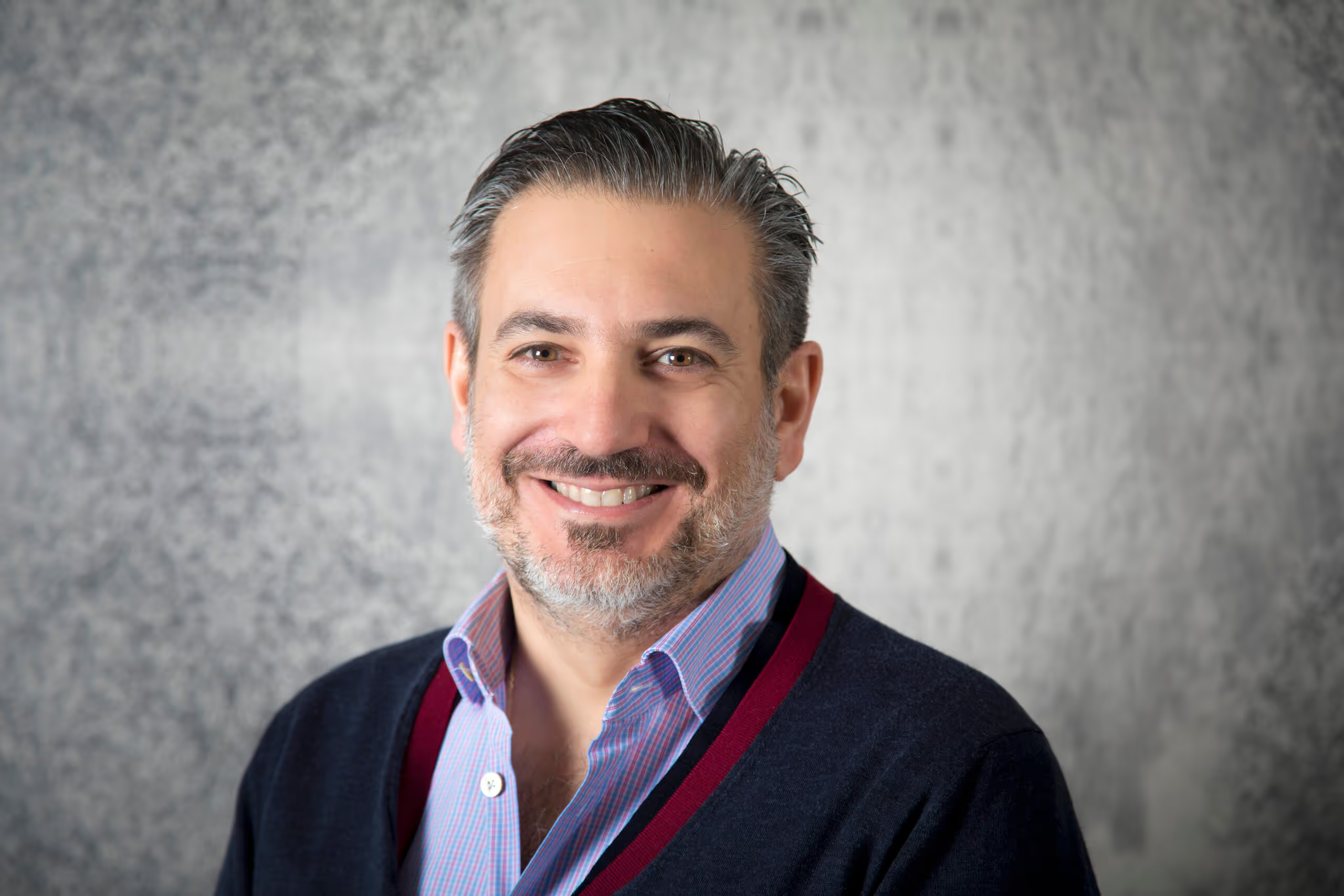Entrevista a Philios Andreou, Deputy Chief Executive Officer de BTS Group

Un buen proceso de sucesión en la alta dirección comienza con la comprensión completa de la estrategia empresarial futura
Uno de los desafíos que tienen por delante las organizaciones es el de afrontar la sucesión de la alta dirección. Se trata de un proceso que requiere una comprensión profunda de la estrategia empresarial de hoy y de los próximos años para determinar los atributos que debe reunir el sucesor. Philios Andreou, Deputy Chief Executive Officer de BTS Group, explica en esta entrevista cómo las compañías deben desarrollar los planes de sucesión para seleccionar a los líderes del futuro.
Según un estudio de la compañía Corporate Executive Board, entre el 50 y el 70% de los ejecutivos fracasan dentro de los primeros 18 meses de su promoción, independientemente de que provengan de dentro o fuera de la organización. Un problema que bebe de las dificultades de las empresas para detectar si las capacidades y la mentalidad de gestión están realmente en consonancia con las necesidades futuras de la organización. Philios Andreou, Deputy Chief Executive Officer de BTS Group, explica que es necesario analizar en profundidad la estrategia empresarial presente y futura para determinar los atributos que debe reunir el sucesor. El proceso, además, debe ser lo más transparente posible para evitar dudas y problemas. «Si las compañías buscan una sucesión a futuro, deben entender profundamente la estrategia empresarial de hoy y de los próximos años», subraya.
Para leer más, haz click aquí.
Related content
Related content

Global spending on AI is forecast to reach $2.52 trillion by 2026, a 44% year-over-year increase, according to Gartner. At the same time, only about 10% of AI pilots scale beyond proof of concept.
What’s the disconnect?
Why aren’t most organizations seeing the ROI they hoped for, despite making such large investments?
It’s not because the technology isn’t ready. And it’s not because the use cases are unclear.
The disconnect exists because many organizations are investing in AI as a technology upgrade and expecting a business transformation in return.
The tools are advancing at breathtaking speed, and most organizations already have AI in motion. But the work itself often stays the same. AI gets layered onto existing tasks instead of being used to rethink workflows end to end. Adoption metrics go up, while decisions, operating models, and value creation remain largely untouched.
When teams first start using AI, they do what makes sense. They try to recreate today, just faster. Can it help me write this? Analyze that? Save a bit of time?
That’s a smart place to begin. But it’s not where ROI, or reinvention, actually shows up.
Getting over the hump
Real returns begin when teams experience what we often call “getting over the hump.”
This is the moment when two things click at once:
- AI can fundamentally change how work gets done.
- People don’t need deep technical expertise to make that change happen.
When teams see weeks of work compress into hours, or watch an end-to-end workflow suddenly run in a new way, something shifts. Confidence replaces hesitation. Curiosity replaces caution. The questions change, from “How do I use this tool?” to “What’s possible now?”
That shift matters, because ROI doesn’t come from using AI more often, it comes from using it to work differently.
Why ROI stalls as AI scales
As AI initiatives expand, many organizations discover that the limiting factor isn’t the technology itself. It’s the environment surrounding the work.
ROI shows up when teams are able to explore and redesign workflows, not just automate steps. That requires clarity on outcomes and guardrails, but also room to experiment, learn, and iterate. When AI is tightly controlled or narrowly deployed, pilots stay pilots. When people are trusted to rethink how work happens, value starts to compound.
Organizations that unlock ROI don’t chase perfect use cases upfront. They focus on learning faster and applying those insights where they matter most.
The early signal that ROI is coming
Long before AI shows up in financial results, there’s an earlier indicator that organizations are on the right path.
People are energized by the work.
You see it when teams start sharing experiments, when ideas move across functions, and when learning becomes visible rather than hidden. Progress feels owned, not imposed.
That energy isn’t accidental. It’s a signal that people feel trusted to rethink how work happens, and that trust is essential to turning investment into impact.
Reinvention happens closer to the work than most expect
AI reinvention rarely starts with a sweeping rollout or a multi-year roadmap. More often, it begins with one meaningful workflow, one team close to the work, and a willingness to ask a different question.
With the right support, that team gets over the hump. What they learn becomes reusable. Patterns emerge. Over time, those insights connect, creating enterprise-wide impact and sustained ROI.
That’s how organizations move from isolated pilots to real returns.
What this means for AI investment
No organization feels fully “caught up” with AI, and that’s true across industries.
The organizations that will realize ROI aren’t waiting for certainty or the next breakthrough tool. They’re reinvesting their AI spend into new ways of working that scale human potential alongside technology.
Handled thoughtfully, AI doesn’t distance people from the work. It brings them closer - to better decisions, stronger collaboration, and better outcomes.
For many organizations, that’s where the real return begins.

Technology choices are often made under pressure - pressure to modernize, to respond to shifting client expectations, to demonstrate progress, or to keep pace with rapid advances in AI. In those moments, even experienced leadership teams can fall into familiar traps: over-estimating how differentiated a capability will remain, under-estimating the organizational cost of sustaining it, and committing earlier than the strategy or operating model can realistically support.
After decades of working with leaders through digital and technology-enabled transformations, I’ve seen these dynamics play out again and again. The issue is rarely the quality of the technology itself. It’s the timing of commitment, and how quickly an early decision hardens into something far harder to unwind than anyone intended.
What has changed in today’s AI-accelerated environment is not the nature of these traps, but the margin for error. It has narrowed dramatically.
For small and mid-sized organizations, the consequences are immediate. You don't have specialist teams running parallel experiments or long runways to course correct. A single bad platform decision can absorb scarce capital, distort operating models, and take years to unwind just as the market shifts again.
AI intensified this tension. It is wildly over-hyped as a silver bullet and quietly under-estimated as a structural disruptor. Both positions are dangerous. AI won’t magically fix broken processes or weak strategy, but it will change the economics of how work gets done and where value accrues.
When leaders ask how to approach digital platforms, AI adoption, or operating model design, four questions consistently matter more than the technology itself.
- What specific market problem does this solve, and what is it worth?
- Is this capability genuinely unique, or is it rapidly becoming commoditized?
- What is the true total cost - not just to build, but to run and evolve over time?
- What is the current pace of innovation for this niche?
For many leadership teams, answering these questions leads to the same strategic posture. Move quickly today while preserving options for tomorrow. Not as doctrine, but as a way of staying adaptive without mistaking early commitment for strategic clarity.
Why build versus buy is the wrong starting point
One of the most common traps organizations fall into is treating digital strategy as a series of isolated build-vs-buy decisions. That framing is too narrow, and it usually arrives too late.
A more powerful question is this. How do we preserve optionality as the landscape continues to evolve? Technology decisions often become a proxy for deeper organizational challenges. Following acquisitions or periods of rapid change, pressure frequently surfaces at the front line. Sales teams respond to client feedback. Delivery teams push for speed. Leaders look for visible progress.
In these moments, technology becomes the focal point for action. Not because it is the root problem, but because it is tangible.
The real risk emerges operationally. Poorly sequenced transitions, disruption to the core business, and value that proves smaller or shorter-lived than anticipated. Teams become locked into delivery paths that no longer make commercial sense, while underlying system assumptions remain unchanged.
The issue is rarely technical. It is temporal.
Optimizing for short-term optics, particularly client-facing signals of progress, often comes at the expense of longer-term adaptability. A cleaner interface over an ageing platform may buy temporary parity, but it can also delay the more important work of rethinking what is possible in the near and medium term.
Conservatism often shows up quietly here. Not as risk aversion, but as a preference for extending the familiar rather than exploring what could fundamentally change.
Licensing as a way to buy time and insight
In fast-moving areas such as AI orchestration, many organizations are choosing to license capability rather than build it internally. This is not because licensing is perfect. It rarely is. It introduces constraints and trade-offs. But it was fast. And more importantly, it acknowledged reality.
The pace of change in this space is such that what looks like a good architectural decision today may be actively unhelpful in twelve months. Licensing allowed us to operate right at the edge of what we actually understood at the time - without pretending we knew where the market would land six or twelve months later.
Licensing should not be seen as a lack of ambition. It is often a way of buying time, learning cheaply, and avoiding premature commitment. Building too early doesn’t make you visionary, often it just makes you rigid.
AI is neither a silver bullet nor a feature
Coaching is a useful microcosm of the broader AI debate.
Great AI coaching that is designed with intent and grounded in real coaching methodology can genuinely augment the experience and extend impact. The market is saturated with AI-enabled coaching tools and what is especially disappointing is that many are thin layers of prompts wrapped around a large language model. They are responsive, polite, and superficially impressive - and they largely miss the point.
Effective coaching isn’t about constant responsiveness. It’s about clarity. It’s about bringing experience, structure, credibility, and connection to moments where someone is stuck.
At the other extreme, coaches themselves are often deeply traditional. A heavy pen, a leather-bound notebook, and a Royal Copenhagen mug of coffee are far more likely to be sitting on the desk than the latest GPT or Gemini model.
That conservatism is understandable - coaching is built on trust, presence, and human connection - but it’s increasingly misaligned with how scale and impact are actually created.
The real opportunity for AI is not to replace human work with a chat interface. It is to codify what actually works. The decision points, frameworks, insights, and moments that drive behavior change. AI can then be used to augment and extend that value at scale.
A polished interface over generic capability is not enough. If AI does not strengthen the core value of the work, it is theatre, not transformation.
What this means for leaders
Across all of these examples, the same pattern shows up.
The hardest decisions are rarely about capability, they are about timing, alignment, and conviction.
Building from scratch only makes sense when you can clearly articulate:
- What you believe that the market does not
- Why that belief creates defensible value
- Why you’re willing to concentrate risk behind it
Clear vision scales extraordinarily well when it’s tightly held. The success of narrow, focused Silicon Valley start-ups is testament to that.
Larger organizations often carry a broader set of commitments. That complexity increases when depth of expertise is spread across functions, and even more so when sales teams have significant autonomy at the point of sale. Alignment becomes harder not because people are wrong, but because too many partial truths are competing at once.
In these environments, strategic clarity, not headcount or spend, creates advantage.
This is why many leadership teams choose to license early. Not because building is wrong, but because most organizations have not yet earned the right to build.

This article was originally publish on Rotman Management
IN OUR CONSULTING WORK with teams at all levels—especially senior leadership—my colleagues and I have noticed teams grappling with an insidious challenge: a lack of effective prioritization. When everything is labeled a priority, nothing truly is. Employees feel crushed under the weight of competing demands and the relentless urgency to deliver on multiple fronts. Requests for prioritization stem from both a lack of focused direction and the challenge of efficiently fulfilling an overwhelming volume of work. Over time, this creates a toxic cycle of burnout, inefficiency and dissatisfaction.
The instinctive response to this issue is to streamline, reduce the number of initiatives, and focus. While this is a step in the right direction, it doesn’t fully address the problem. Prioritization isn’t just about whittling down a to-do list or ranking activities by importance and urgency on an Eisenhower Decision Matrix; it also requires reshaping how we approach work more productively.
In our work, we have found that three critical factors lie at the heart of solving prioritization challenges: tasks, tracking and trust. Addressing these dimensions holistically can start to address the root causes of feeling overwhelmed and lay the foundation for sustainable productivity. Let’s take a closer look at each.

